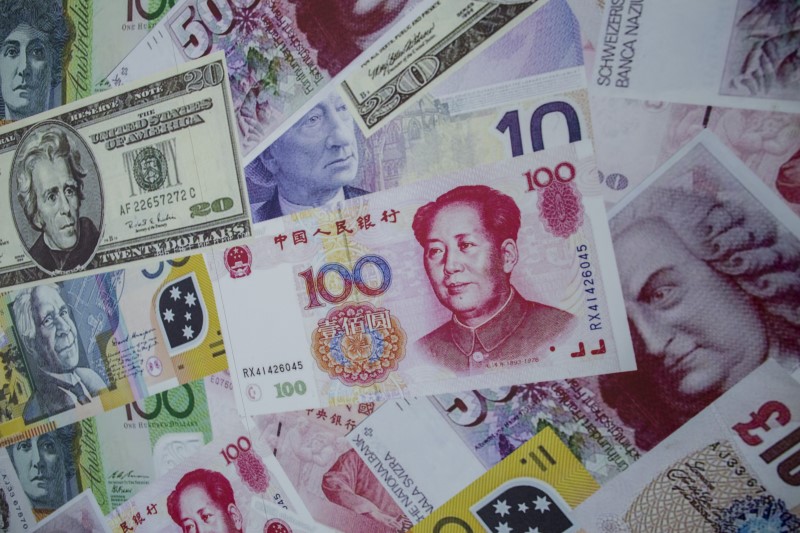WASHINGTON (Reuters) - The United States on Friday flagged concerns over economic policies in China, Japan, Korea, Taiwan and Germany and put them on a new monitoring list, mostly due to their large surpluses.
It is the first time the U.S. Treasury has implemented provisions passed in Congress this year as part of a trade bill that provided it with new ways to address possible unfair currency practices.
None of the five countries satisfied the criteria for enhanced scrutiny, which is triggered when a country has a significant bilateral trade surplus with the United States, a material current account surplus and engages in persistent one-sided intervention in the currency market.
Still, Treasury said it would closely monitor the five countries' economic trends and foreign exchange policies.
In its semi-annual report to Congress on the economic and currency policies of a dozen major trade partners, the Treasury did not label any major trade partner a currency manipulator, a custom it has kept for the past 22 years.
The United States has for years called for countries with current account surpluses to do more to boost lackluster domestic demand.
Trade has emerged as a flashpoint in the U.S. presidential campaign, where some leading contenders have blasted trade pacts as having cost American jobs and railed against countries they say have weakened their currencies to boost exports.
In its report, Treasury said that China, Japan, Korea and Germany all had a significant bilateral trade surplus with the United States and a material current account surplus.
A significant trade surplus with the United States is defined by Treasury as a country with a bilateral trade surplus of more than $20 billion.
Treasury determines a country has a material current account surplus when its surplus is larger than 3 percent of that economy's gross domestic product.
Low oil prices had swelled the coffers of oil importing countries, including China, Germany, Taiwan and Korea.
In particular, Treasury noted Germany had the second-largest current account surplus in the world, part of which could "be used to support German domestic demand."
Taiwan was found to have both a material current account surplus and have made "persistent" net foreign currency purchases last year, prompting the United States to call on it to limit foreign exchange interventions to exceptional circumstances and increase transparency.
It issued a similar call on Korea to limit currency intervention.
China intervened heavily in foreign exchange markets in recent months and "more clarity over exchange rate goals would help to stabilize the market," Treasury said, adding that it expected the renminbi to continue to experience real appreciation over the medium term.
Elsewhere in the report, the United States rebuffed recent Japanese efforts to seek informal consent to act against an unwelcome yen rise, saying that the current dollar-yen market was "orderly" and reiterating all countries must abide by G20 and G7 commitments on exchange rate policies.
